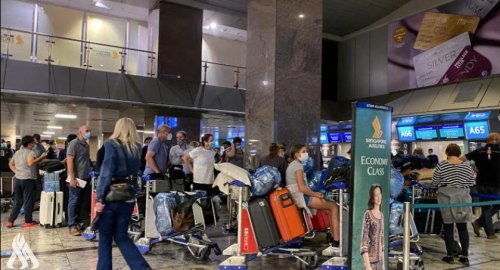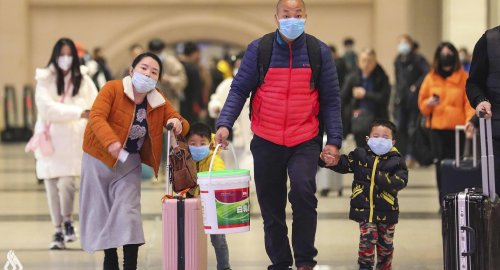Follow-up INA
Restrictions continue to be imposed across the world in the face of the spread of the new mutant Omicron from Covid-19, as is the case in Germany, which is expected to tighten measures Thursday, after the World Health Organization warned of a “harmful” mixture represented in low vaccination rates and examinations.
Berlin is scheduled to take new measures, including the possible closure of bars and other public places and the imposition of compulsory vaccination, and this measure is expected to be applied in Austria, and is being studied in different countries such as South Africa, even if the resistance is strong.
European Commission President Ursula von der Leyen said at a press conference that the issue "must be discussed" in EU member states.
The Director-General of the World Health Organization, Tedros Adhanom Ghebreyesus, stressed in Geneva that at the present time the rate of vaccination and detection of low infections constitute a "harmful" mixture.
He warned that it is "a perfect recipe for the proliferation and spread of mutants," stressing that the end of the epidemic is "a matter of choice."
Highly contagious
In South Africa, where the discovery of the omicron mutant was announced last week and where less than a quarter of the population has been vaccinated, authorities spoke to parliament about the "accelerated" spread of the virus, and that the new mutant, which appears to be highly contagious, is already circulating.
On Wednesday, United Nations Secretary-General Antonio Guterres condemned the closure of the borders, describing this measure as a form of "apartheid" against the African continent, which has insufficient vaccination rates.
As the OECD said, the priority remains "to ensure that vaccines are produced and distributed as quickly as possible worldwide.".
The developed nations of the Group of Twenty spent $10 trillion to protect their economies during the crisis, while vaccinating the world's population would only cost 50 billion, said Lawrence Boone, chief economist at the Organization for Economic Cooperation and Development.
The mutated omicron was detected on all continents, but Europe, which faced a strong outbreak of the epidemic before its appearance, appears to be the most affected.
After many other countries, Ireland, Iceland and India in turn announced the first case. On Thursday, France confirmed the first case of infection on its soil, after discovering the first case on the island of Reunion.
The countries of the old continent decided to tighten health restrictions again, control the borders, ban travel to the southern African region, make it mandatory to put a muzzle in public transport and shops in the United Kingdom, and recommend the vaccination of children at risk in France.
In Belgium, it is not excluded that the authorities will hold a third meeting in less than three weeks to decide on new restrictions on activities indoors and in schools. Flanders, the country's number one region, called for a new tightening of measures, with the support of Federal Health Minister Frank Vandenbroek Thursday, who described the "situation in hospitals as tragic.".
Denmark, which faced a strong epidemic outbreak, set a record on Wednesday with more than 4,500 new cases, and re-imposed the mandatory examination of travelers coming from Doha and Dubai.
“Virus without borders”
The United States announced Thursday that it will strengthen examinations for travelers coming to its lands, starting next week, after the first case of the mutant Omicron was announced yesterday.
In Asia, Japan, which closed its borders to foreigners, announced the discovery of two cases of the new mutant, and on Wednesday asked airlines to suspend new reservations to its territory for a month.
Nigeria, the most populous country in Africa, also recorded its first three cases of people returning from South Africa, just like the first three cases detected in Brazil.
The first case was reported in Saudi Arabia - in a Saudi returning from North Africa - as well as in the United Arab Emirates.
Various laboratories including Moderna, AstraZeneca, Pfizer/Biontech and Novavax have expressed confidence in their ability to produce a new vaccine against Omicron.
Russia also announced that it is developing a version of "Sputnik V" that specifically targets this mutant.














